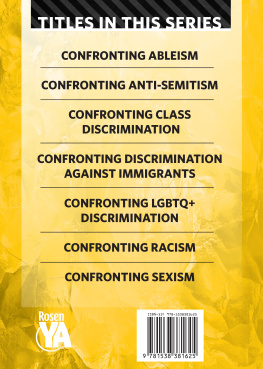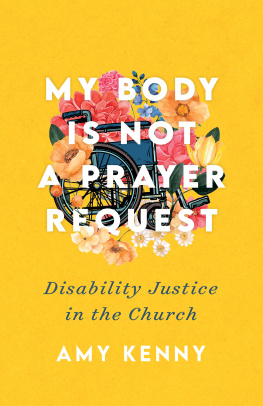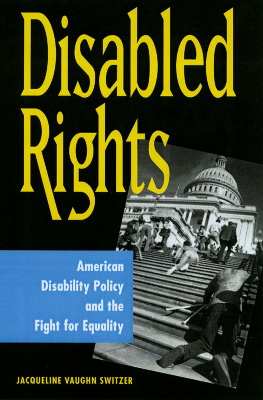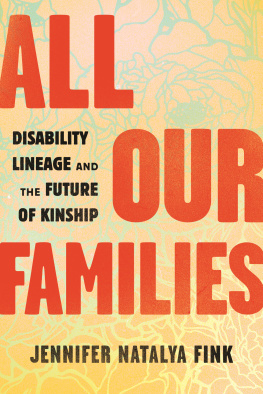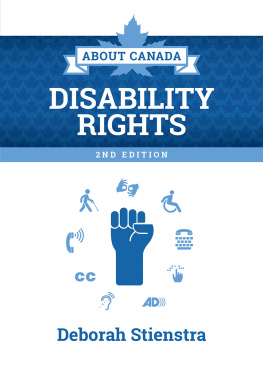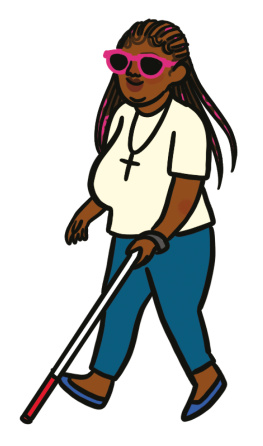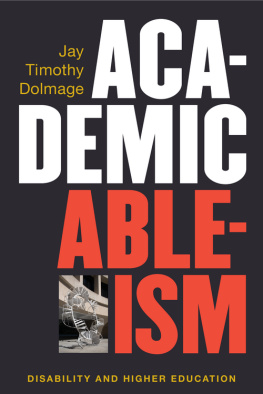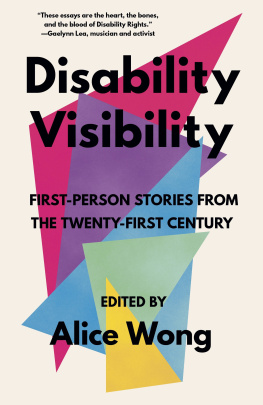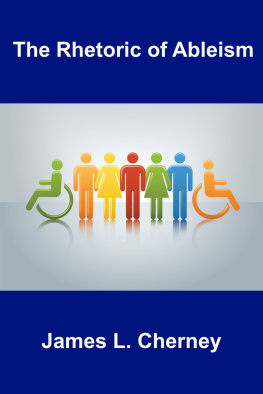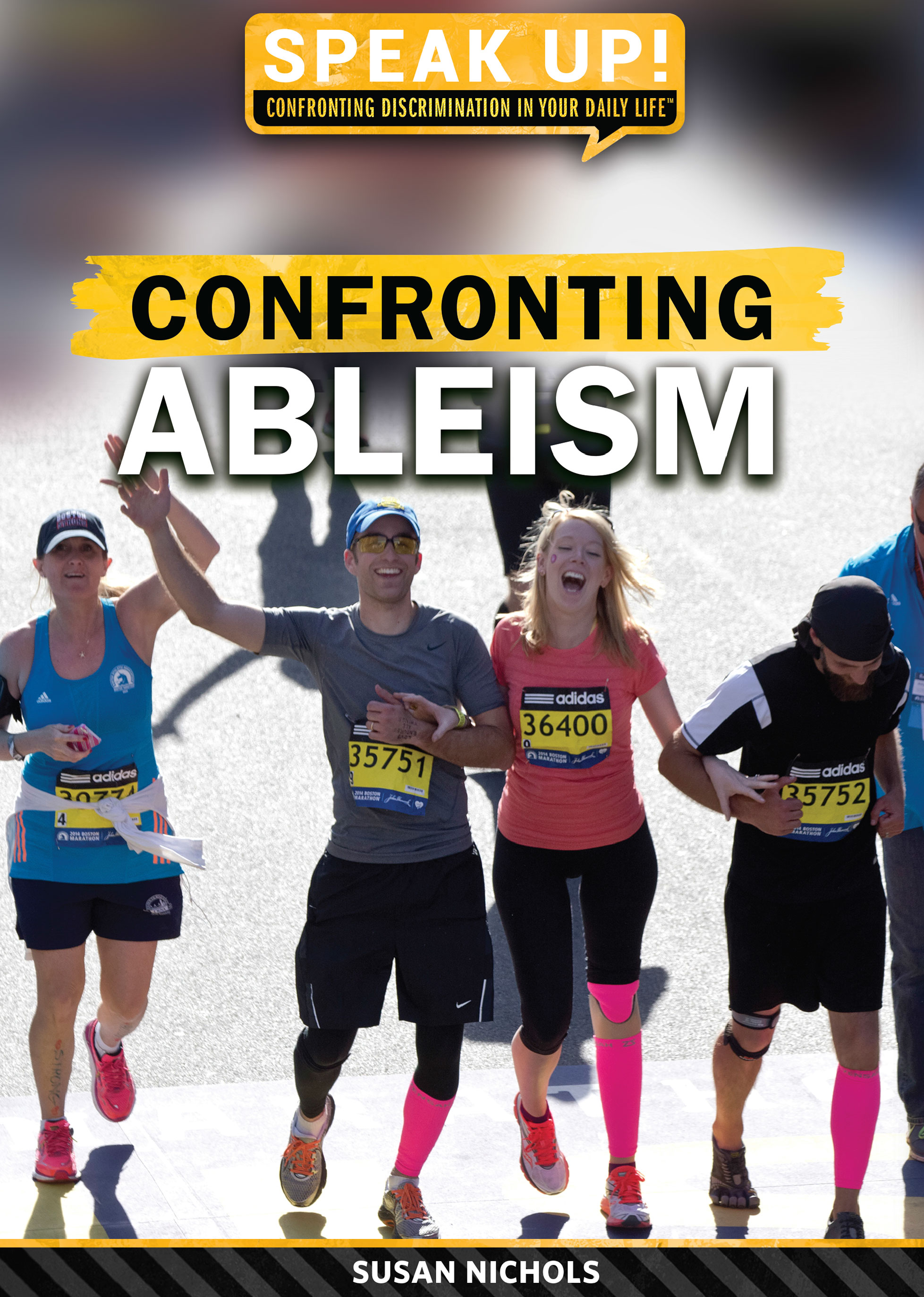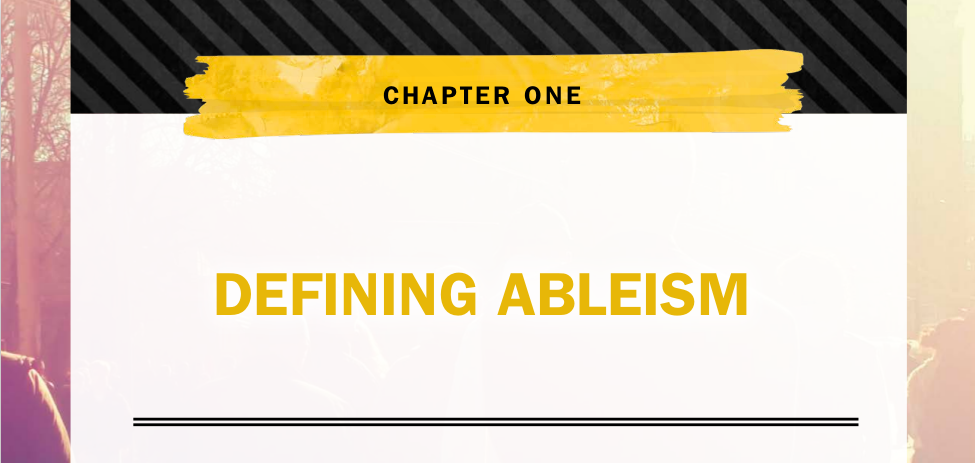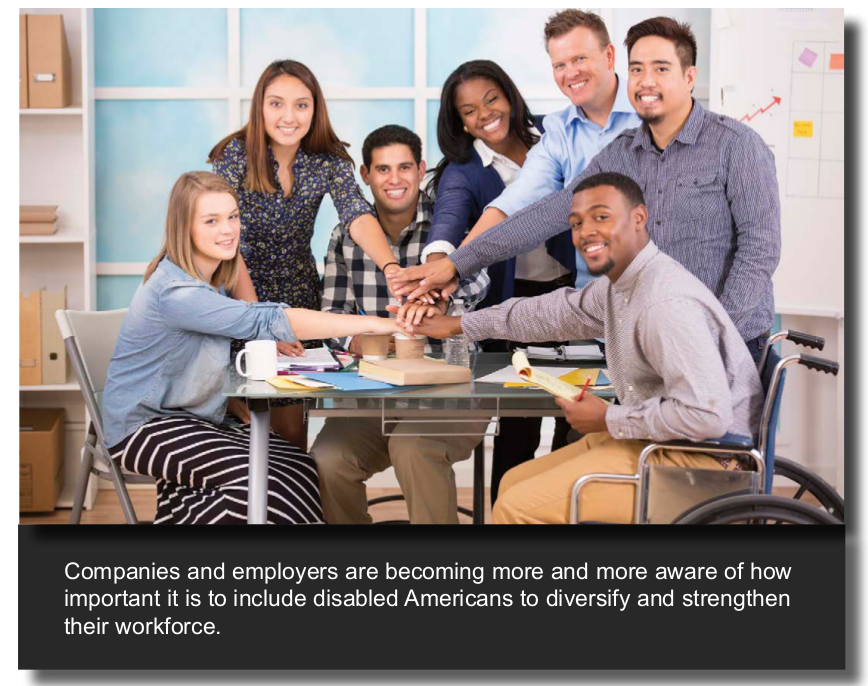Published in 2018 by The Rosen Publishing Group, Inc. 29 East 21st Street, New York, NY 10010
Copyright 2018 by The Rosen Publishing Group, Inc.
First Edition
All rights reserved. No part of this book may be reproduced in any form without permission in writing from the publisher, except by a reviewer.
Library of Congress Cataloging-in-Publication Data
Names: Nichols, Susan, 1975 - author.
Title: Confronting ableism / Susan Nichols.
Description: New York: Rosen Publishing, 2018. | Series: Speak up! Confronting discrimination in your daily life | Includes bibliographical references and index. | Audience: Grades 7-12.
Identifiers: LCCN 2017015792| ISBN 9781538381625 (library bound) | ISBN 9781538381601 (pbk.) | ISBN 9781538381618 (6 pack)
Subjects: LCSH: Discrimination against people with disabilitiesUnited StatesJuvenile literature. | People with disabilitiesUnited States-Juvenile literature.
Classification: LCC HV1553 .N53 2018 | DDC 305.9/080973-dc23
LC record available at https://lccn.loc.gov/2017015792 Manufactured in The United States of America
H istorians like to point out that the United States was founded on principles of freedom. Every American has the right to life, liberty, and the pursuit of happiness, according to Thomas Jeffersons words in the Declaration of Independence. However, that has not always been true. In fact, it was not true at the time the declaration was signed because many Americans were suffering under slavery and women had few legal rights compared with men. Slavery was legally abolished in 1863, when Abraham Lincoln signed the Emancipation Proclamation, and women were granted the right to vote in 1920. Of course, those were positive legal developments, but they did not instantly correct the everyday discrimination that people experienced.
Over the last sixty years in the United States, Americans have become more aware of the ways in which their fellow citizens may still not enjoy the rights to which they are entitled. For example, during the civil rights movement of the 1950s and 1960s, Americans moved to ensure that African Americans rights to vote, attend school, and work were protected. In the 1970s, an active womens rights movement made progress in highlighting the discrimination that existed against women. Gay and lesbian Americans saw their right to marry earn federal recognition in 2015 when the Supreme Court ruled gay marriage legal.

This protest led by ADAPT, an organization that defends the rights of disabled Americans, was held in front of the White House in 2009. It called for President Obama to pass the Community Choice Act with health care reforms.
There is one group in particular whose rights are still not fully recognized, howeverand its members are numerous. One in every five Americans has a disability, according to a 2012 US Census Bureau report. That means that 56.7 million people, or almost 20 percent of the population, are disabled in some way. Some people have multiple disabilities, and many have disabilities that are severe and that prohibit their ability to fully participate in a normal lifestyle.
Some Americans have disabilities that require assistance in their everyday activities. For example, a blind person may need another person or a specially trained dog to help him or her be mobile and travel. Still other Americans have disabilities that may seem invisible to those who are unaware of them. For example, according to the US Census Bureau, About 19.9 million people [have] difficulty lifting and grasping. This includes, for instance, trouble lifting an object like a bag of groceries, or grasping a glass or a pencil. It is more difficult to see this type of disability in another person, but it obviously is a problem that can prevent that person from completing everyday, routine activities.

Despite this tremendous number, Americans with disabilities are frequently discriminated against in their lives. While many Americans are becoming more aware or sensitive to discrimination experienced by people in terms of race, gender, ethnicity, and religion, some are still unaware of the ways in which disabled Americans are ostracized and their rights denied.
D iscrimination is defined as the unjust treatment of different categories of people or things, especially on the basis of factors like race, age, religious affiliation, or sex. In a nation that prides itself on protecting every citizens right to life, liberty, and the pursuit of happiness, it is important to understand that, while nobody can tell a person how to feel about a group of people, discrimination is against the law.
For example, a person may have a bias and feel prejudiced against a certain group of people, such as women, Jews, or Asian Americans. However, that person may not legally treat someone from that group differently because of his or her feelings. In another example, a company owner may unjustly feel that a certain group of people is lazy, but he or she may not deny a person from that group an equal chance for a job at the company.
WHAT IS DISCRIMINATION?
Understanding that discrimination is illegal is especially important when it interferes with someones ability to fairly get a job. The US Equal Employment Opportunity Commission (EEOC), which oversees hiring and employment practices in the country, specifically details which forms of discrimination in the workplace are against the law. The EEOC also lists hiring practices that are considered illegal because they can be considered forms of discrimination.
For example, employers may not ask for a photograph of a job applicant until after the decision has been made to offer the person a job and the applicant has accepted the offer. It is also against the law to consider many aspects of a job applicants life when hiring:
It is illegal for an employer, employment agency or union to take into account a persons race, color, religion, sex (including gender identity, sexual orientation, and pregnancy), national origin, age (forty or older), disability, or genetic information when making decisions about job referrals.
There are many US federal and state laws that make discrimination, in many forms, illegal. For example, the 1964 Civil Rights Act made segregationthe Jim Crow laws that had curtailed the rights of African Americans for decadesillegal. According to History.com, Segregation on the grounds of race, religion or national origin was banned at all places of public accommodation, including courthouses, parks, restaurants, theaters, sports arenas and hotels. No longer could blacks and other minorities be denied service simply based on the color of their skin.

